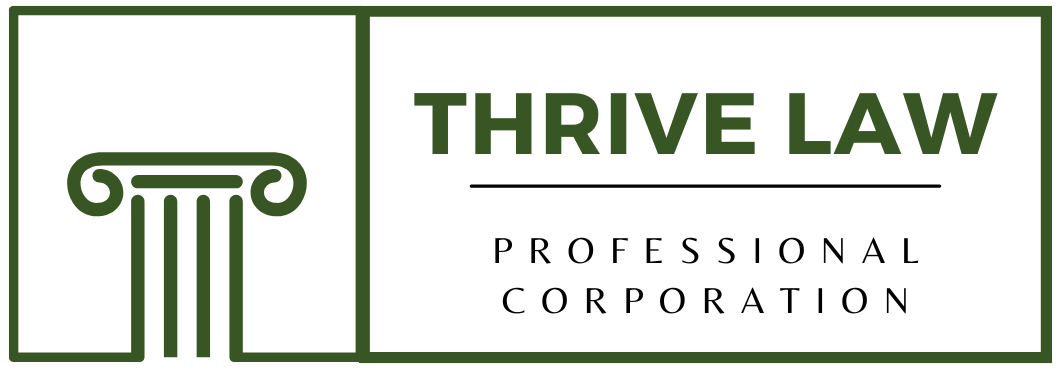
Saad Mirza
Hi! beautiful people. I`m an authtor of this blog. Read our post – stay with us

Saad Mirza
May 15, 2025
Severance Pay for Federally Regulated Employees: What You Need to Know
If you work for a bank, airline, or telecom company, your severance rights are different from most Canadian employees. I often hear from my clients who are surprised to learn that their entitlements are governed not by provincial law, but by the Canada Labour Code (CLC). Understanding how severance pay works under the CLC is crucial, especially if you find yourself facing termination.
Who Is a Federally Regulated Employee?
Federally regulated employees make up a small but important segment of Canada’s workforce-about six percent, according to recent estimates. If you work for a bank, airline, airport, railway, shipping company, broadcaster, telecom provider, or a federal Crown corporation, your employment falls under federal jurisdiction.
This is different from the vast majority of Canadians, who are covered by provincial laws like Ontario’s Employment Standards Act (ESA). If you’re unsure which category you fall into, it’s worth asking your employer or checking government resource.
What Is Severance Pay Under Federal Law?
Severance pay for federally regulated employees is set out in Part III of the Canada Labour Code, not provincial legislation. You become eligible for severance if you are terminated without cause and have completed at least 12 consecutive months of employment with your employer. This applies whether you’re full-time, part-time, or hourly. Severance is not owed if you are dismissed for just cause, resign voluntarily, or are on a temporary layoff with recall rights.
It’s important to note that you may also be entitled to termination pay-essentially notice or pay in lieu of notice-which is a separate entitlement under the CLC.
Severance vs. Termination Pay: What’s the Difference?
Many clients come to us confused about the difference between severance pay and termination pay. Here’s how they work under the CLC:
• Termination Pay: This is notice or pay in lieu of notice, owed to most employees who are let go after three months of service. The minimum is two weeks’ notice or pay in lieu.
• Severance Pay: This is additional compensation, owed after 12 months of continuous service. It’s calculated as two days’ wages for each completed year of service, with a minimum of five days’ wages even if you have worked less than three years.
How Is Severance Calculated?
The calculation is straightforward but can have a big impact. If you’ve worked, say, five years at a federally regulated bank, you’d be entitled to at least ten days’ wages (two days per year), or five days’ wages-whichever is greater. Employers sometimes offer more generous packages, especially for long serving or senior employees, or if your employment contract or common law rights provide for more.
I’ve seen clients offered the minimum, only to negotiate significantly higher settlements based on their age, position, length of service, and ability to find new work. In some cases, severance packages can reach up to 24 months’ pay, particularly for senior employees.
Do You Always Get Severance?
Not always. Severance isn’t owed if you were fired for just cause, resigned, or are on a temporary layoff that doesn’t become a termination.
For example, we’ve advised airline employees who were temporarily laid off during industry downturns. If the layoff extends beyond 12 months or there’s no realistic chance of recall, it may become a termination, triggering severance entitlements.
Common Misunderstandings
We regularly encounter misunderstandings, such as:
• Assuming provincial rules apply when you’re federally regulated
• Confusing severance with vacation pay or Employment Insurance (EI)
• Believing you have no rights if you’re laid off temporarily
• Signing a severance offer or release too quickly, waiving your right to negotiate
Additional Compensation You Might Be Entitled To
Beyond severance and termination pay, you may also be owed:
• Accrued wages
• Vacation pay
• Bonuses or commissions earned but unpaid
• Continuation of group benefits or pension contributions for a period after termination
If you’ve been presented with a severance offer, don’t sign anything before seeking legal advice.
Federally regulated employees have unique severance protections that differ from provincial rules. If you work in banking, airlines, telecom, or other federally regulated sectors and face termination, your severance offer can often be improved with legal help.

Author: Saad Mirza
I’m Saad Mirza, the founder of Thrive Law, a employment law firm dedicated to helping employees across Ontario navigate challenging job terminations and workplace issues.
Quick Links
Our Services
Additional Links
Follow Us
Copyright © 2025 All Rights Reserved By Thrive Law


